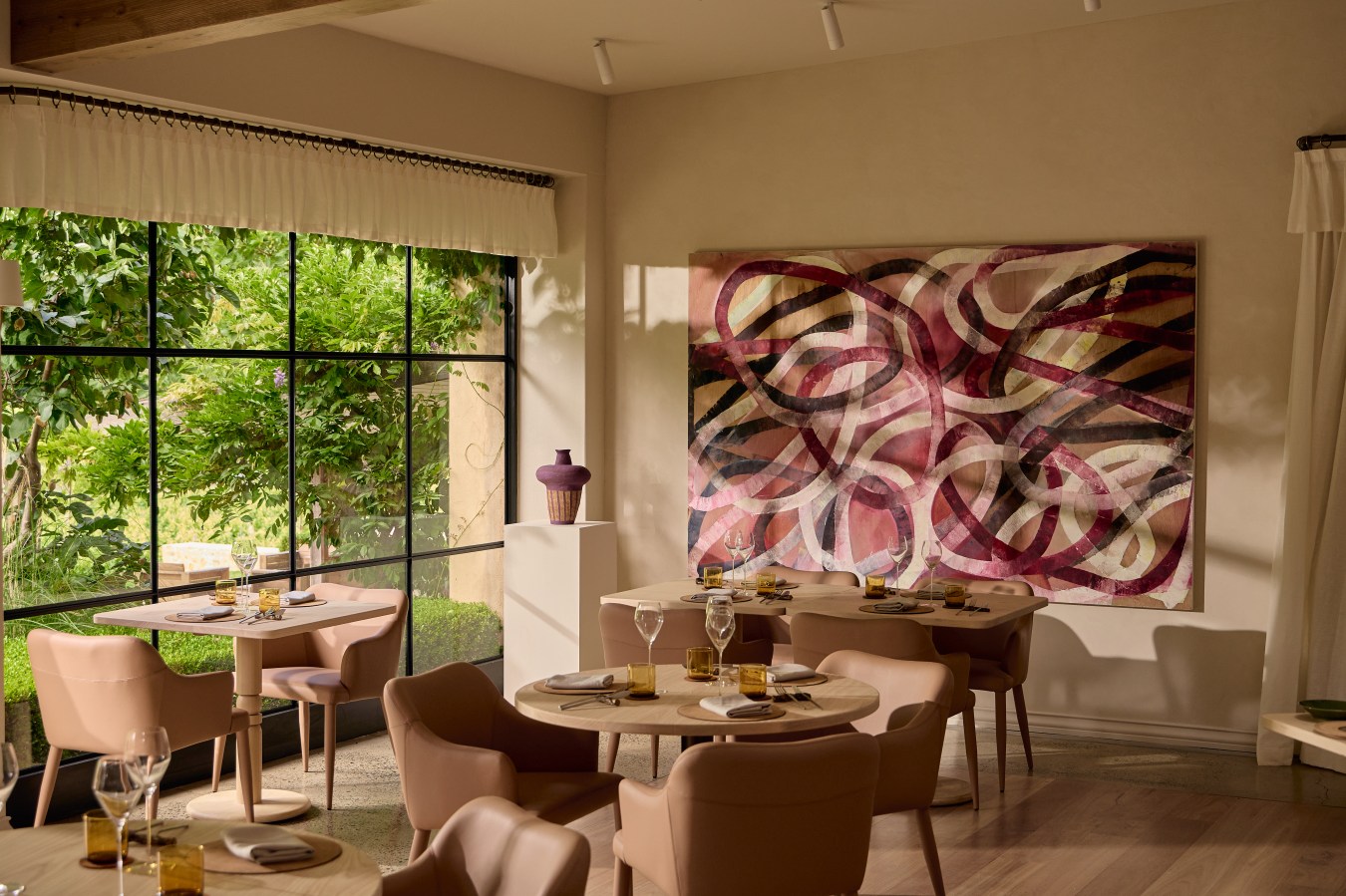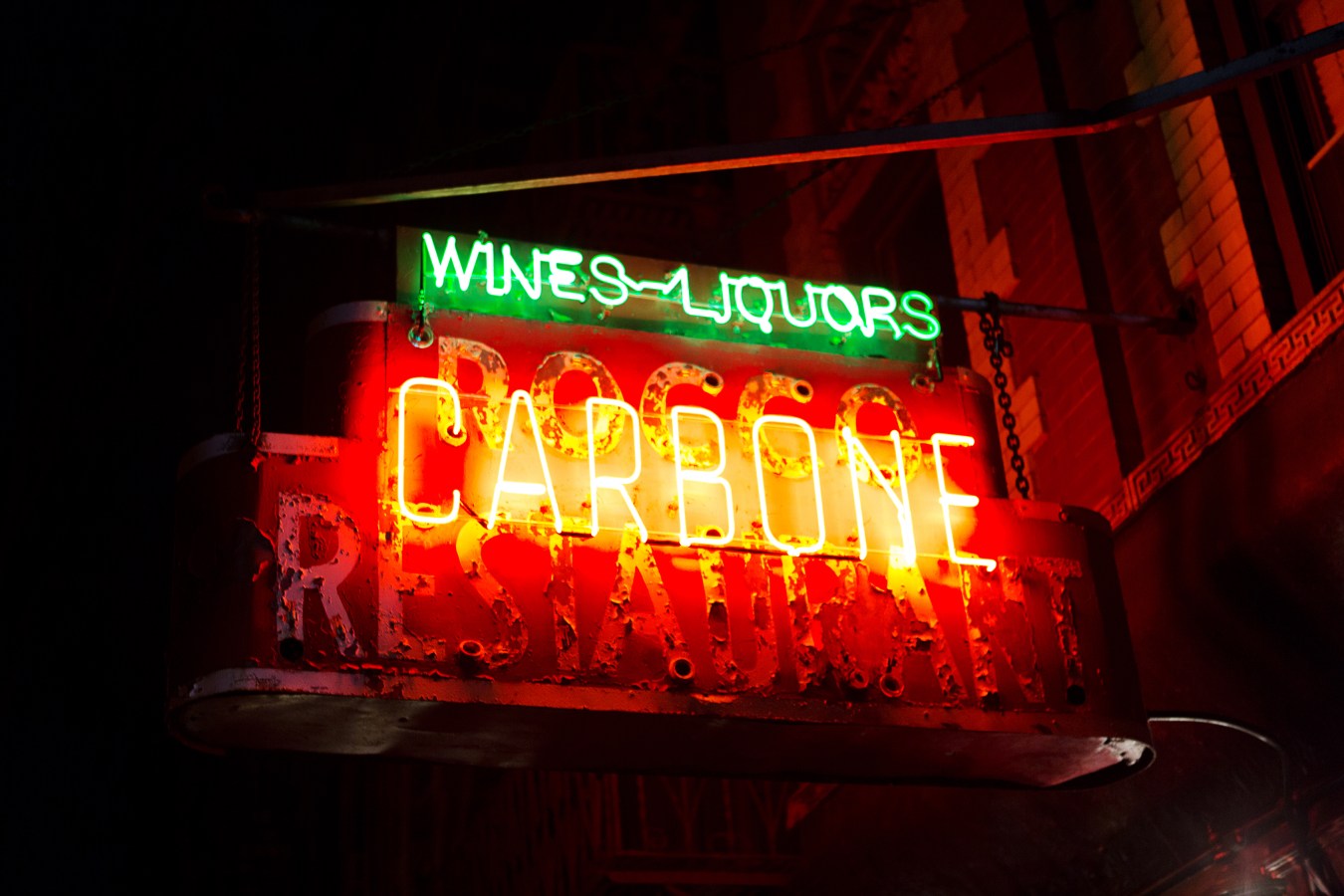This week, Clare Smyth returns to the kitchen of Sydney’s spectacular Oncore restaurant that sits atop the 26th floor of Crown in Barangaroo. It marks 25 years since Smyth first set foot on Australian soil and three years since the opening of the (only) sister restaurant to London’s Core.
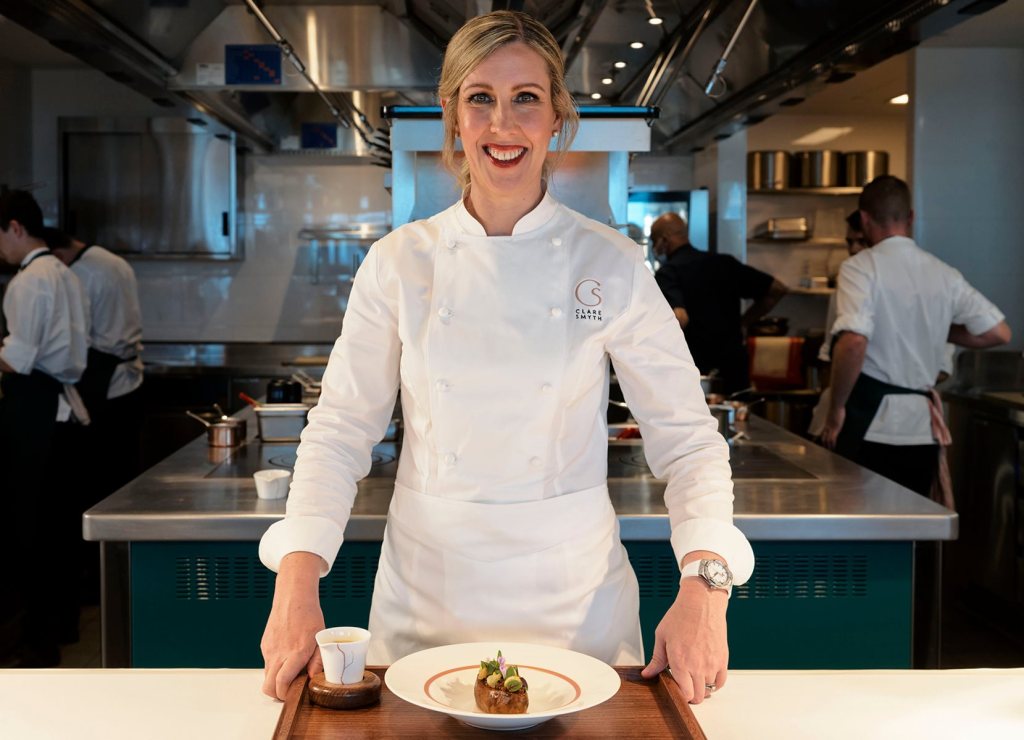
I understand Sydney holds a warm place in your heart, not just because it is home to Oncore by Clare Smyth, but even long before that?
I’ve always had a special connection to Australia, it has always drawn me. I lived here for a few years – I came in 1999-2000 for the Millennium and the Olympics. It was a very, very special time to be in Sydney. I was 20-21 and came to work and learn and travel. I’ve always had that connection, and I’ve come back to Sydney and Melbourne at least once a year for the last 10 years or more. In 2014, Restaurant Australia brought chefs from all over the world here. We went to Tasmania, Margaret River, and Melbourne for the food and wine festival. It felt like Australia did a lot to promote its food and its produce.
How did Sydney come to be the home for Oncore? You could have chosen any city in the world.
Some of the team working on Crown Barangaroo were in London, and they happened to walk past Core. And then they came for lunch at Core, and they said okay, now this is actually what we want. And then we started up that conversation, And of course, this location, this building is just stunning, I mean, I couldn’t say no. I feel very, very fortunate, it’s one of the most beautiful dining rooms and views in the world. In one of the most beautiful cities in the world.

How do you sum up what Oncore is and what sets it apart from other restaurants?
I call it informal luxury, our style. We practice our art form to the highest level, but we are informal about it. The ultimate luxury and comfort in the world is to be how you want to be, and to have an atmosphere that you enjoy being in. So the comfort, the approachable nature of the way we do things is very, very important to me, and I think that really resonates with Australia as well. This is how the fine dining world is moving globally – it’s not having to think about what you’re going to wear, how to pronounce something. Leave that all to us, come in, relax, we’re going to take care of you.
How is Oncore similar, and different, to London’s Core?
“Oncore is very much the sister restaurant to Core. We have the same values essentially, we use what we have around us. There’s a saying an old chef used to have – you look where you are, you see what you have, and then you do what you know. So for us, we look and see what we have around us, we cook in our style, we create the environment that we want, but we’re using the produce around us. So it’s a quest of going out and finding the producers, and the suppliers, and the ingredients.
I also have to think about what will resonate with people here in this market. We have a lot of similarities obviously, but I’m not Australian, so I can never do those like familiar Australian things. We do have a similar nostalgia with dishes and food.
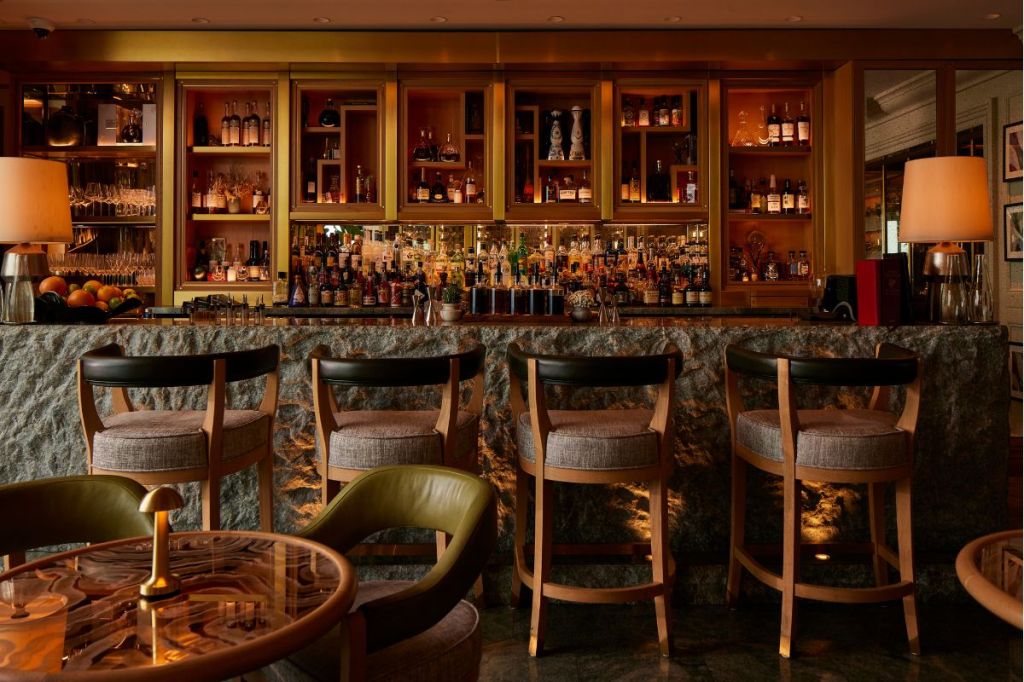
How do you describe the ‘Clare Smyth style?’
I try to create delicious food, and I like to challenge myself by using quite humble ingredients. My signature dish is a potato, and I’ll do things with carrots and vegetables that are very easily grown and more sustainable. It’s very hard to create a really top level world-class dish from those ingredients, but that is my favourite way to work. That’s what I love – the challenge, the restriction. I don’t like flying ingredients from all over the world and having no connection to them, I use what we have.
What restrictions do you have on Australian-grown ingredients?
They are all Australian ingredients. We’re very strict on the fish and everything that we use, sometimes I hear ‘can’t we just use fish from New Zealand?’ No, let’s work with what we have, and use our skills to make it work.
Australia produces some of the most fantastic truffles in the world and exporting them is becoming quite big business. We use stunning incredible truffles from various places in Australia.

How do you maintain your high standards when you are away from the Sydney restaurant?
You need a really good team, it’s as simple as that. I’ve known Alan Stuart since he was about 20 years old, when he first came to work with me. Michael heads up the front of house, Ryan is the head bartender, those guys have been with me for a long time. They’ve all been to Core in London. Michael is South African, Ryan is Australian, Alan is from New Zealand. We have that synergy, so we never miss a beat.
I’ll probably be here about four times this year, ultimately me coming is quality control —checking everything from the wine pairings, the cocktail pairings, the bar menu where people are able to come and have a small tasting menu — little dishes from the restaurant with a cocktail pairing. It’s less of a commitment than coming to dine next door, so it could be much quicker, you could eat as much or as little as you like.
What is your vision for the future? Will there be other ‘sisters’ for Core and Oncore?
I don’t want to have lots of restaurants, I just want to have high-end quality and maintain a very close connection with everything that I do. But we do always need to grow at a certain rate to provide opportunities for the team. I have a very, very loyal team, some of them have been with me over 15 years, I need to do things to provide them with opportunities and financial security. I really want people to do well, not just myself. That investment they’ve put into me, to making me successful, it’s time to make sure that they have that success as well.
I love what I do, and I love being in hospitality, I love making people happy, and over the next 10 years, I’ll still be doing service if I can. I’m a chef. It’s like a football player – you will play as long as you can. I will do this as long as I can.
You have reached the top of a heavily male-dominated industry, which is no easy feat. Can you talk about what you learned from those years of pushing through barriers to get where you are?
I was often the only woman in the kitchens I was working in. I was the first woman in Britain to win three Michelin Stars and one of like eight or nine in the world. Women of my generation who have reached the top tend to have been the firsts, and that takes a lot of perseverance to be able to do that. I feel like we now have a responsibility to make sure the next generation makes it.
Fifty-per cent of my kitchens are now female, but I know the dropout is going to be a lot, so I really, really invest a bit more in them to try to make sure they make it, so they can really change things and shake it up. It’s not about discriminating between male and female. Sometimes you have to give a little bit more to make the balance equal. Young women need to see women succeeding. Lots of my team have said they came to work for me because I’m a woman. Growing up in male-dominant environments, things like doing your hair, your makeup, your clothes, all those things – I didn’t have that connection to the people I was working with. And now, it’s so nice, because I talk with the girls, you know, about shoes and things that I like and am interested in.

It is a literal and metaphorical hotbed in a kitchen. Where did that tenacity come from in you – to not just stay in it, not just survive, but absolutely thrive?
I’ve always been very, very competitive and driven, and I don’t take criticism very well. It really creates a fire in me to prove people wrong. I’ve always been about small margins of gain, like, understanding what it is to gain the little margins all the time. When I was coming up through the ranks, you know, I’d often get overlooked for a big guy that’s sort of charismatic. I was shy and quiet, but I always knew I had more stamina. That drive, the stamina, the staying power, I knew I would outlast them, and I would really focus on myself, on detail, becoming really, really good at something. That fire was always in me. I didn’t like being overlooked but it would happen and I used it to drive me.
You have a partnership with Swiss watch company Hublot. What is the crossover between fine dining and luxury timepieces?
I’m an ambassador for Hublot, I was a big fan of the watch, and then they approached me to work with them. The alignment on the way that they love gastronomy, they love sport, and the CEO Ricardo, is a big foodie. We have a lot of synergy around creativity and audacity and pushing boundaries. Hublot was the first to start making rubber straps in luxury watchmaking, and they do things with colour that no one else has ever done. They push boundaries and it’s such a traditional industry, they weren’t scared to do something different, and it really works.
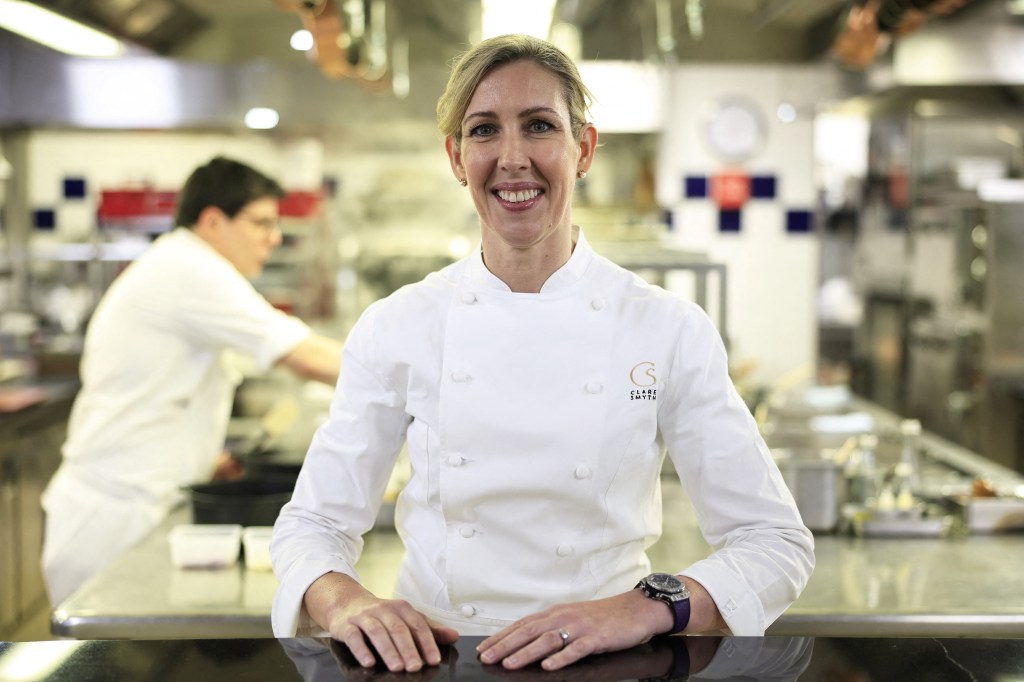
It’s very similar to the way I approach food. There is all this tradition around how you work, how you should be, what music you should play, how you should do things. And I don’t. I put my own music on, I make potatoes, and we have three Michelin Stars. It’s about the audacity sometimes – to be brave and do something differently and also to have the confidence in your own ability.
How does the watch you’re wearing stand up in the kitchen? Do you wear it during service and does it get ruined?
I do wear it in the kitchen, I have a special gourmet one, they call it the Big Bang Gourmet, which is made out of the metal from chef’s knives. They are great because the strap can change, and when I travel I bring the straps for whatever outfit I’m wearing. I’ve got lots of coloured straps, which is great for ladies in particular, you just change the strap for the colour of your outfit, and you’ve got a different watch every time.
Can you finish this sentence for me? The key to incredible cooking is…
Great ingredients.
Forbes Women is mobilising a network of female business owners, entrepreneurs and changemakers who support and empower each other. Become a member here.
Look back on the week that was with hand-picked articles from Australia and around the world. Sign up to the Forbes Australia newsletter here or become a member here.
